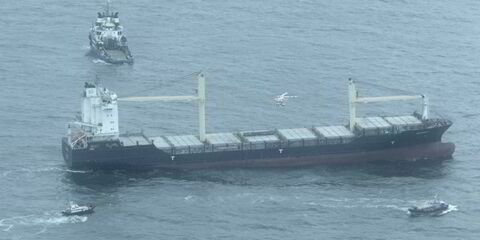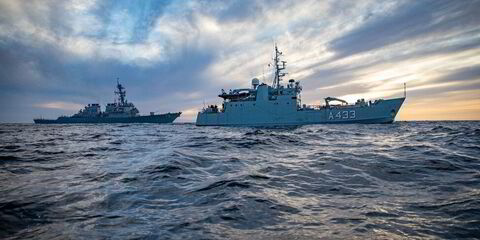Tightening US and EU sanctions on Iran have made it increasingly difficult for shipping industry insiders to manage dealings with the Middle East.
When vessels tied to a foreign subsidiary of US shipowner call at Iranian ports, the company may not be in violation of long-standing sanctions against Iran unless the parent facilitated a transaction, according to an attorney at Holland & Knight.
Jonathan Epstein says times are changing, however, and under more recent sanctions laws, the owner and its affiliate could land in hot water if it had knowledge about the transport of refined petroleum products to Iran though the carriage of crude from the embattled nation would not "in and of itself" trigger sanctions against either.
“A parent company could be sanctioned if it had ‘actual knowledge’ or ‘should have known’ that an entity it owns or controls provided services to Iran in excess of $250,000 that contributed to the maintenance or expansion of Iran's domestic production of petrochemical products,” he explained in an interview with TradeWinds.

Today, there is new legislation on the radar called the The Iran, North Korea, and Syria Nonproliferation Reform and Modernization Act of 2011, more commonly known as the ‘180-day rule’, which could further complicate dealings with Iran as it would ban foreign-flagged vessels from calling on the US if it has stopped in those countries in the previous six months.
“Vessels entering US ports would need to certify that they had not called on such foreign ports within the prior 180 days,” Epstein explained. “Under the House bill a false certification would bar the vessel and any vessel owned or operated by the same parent or associated company from calling on the United States for two years.
“As currently written, neither bill has an express grace period or delayed implementation of this 180 day rule. While a retroactive application of US law is not without precedent, it would be more likely that the final law would have a 180-day grace period for enforcement of such ban.
“Notwithstanding the popularity of anti-Iran legislation, there has been no movement on these bills this year, and given recent US and EU sanctions, there does not appear to be a big push to move this legislation quickly.”
OSG
While Epstein declined to discuss Overseas Shipholding Group’s recent dealings with Iran, it would appear that his take on sanctions offer further evidence that the US-based tanker owner was not in violation when the 317,900-dwt Overseas Rosalyn (built 2003) and other vessels linked to the Tankers International Pool called on Kharg Island on at least one occasion over the past year.
While the company has always maintained its innocence, an influential US politician recently accused OSG of “openly flaunting the sprit- if not the letter- of the United State’s government’s own sanctions policy towards Iran” in a letter that prompted an outcry from some industry critics and commentators, including First International chairman Paul Slater.
"As the leading American tanker company to the world, OSG should be leading the way in regards to US and EU sanctions, not hiding behind the complexities of law," he said. "It’s disgraceful for such a company to pick up even one gallon of Iranian oil. I find it very surprising but at least they have indicated that they will no longer be involved in these troubling transactions."
Check out the Related Media Section to the right of this article to read a presentation about US Sanctions by Holland & Knight and Credit Agricole(Copyright)


